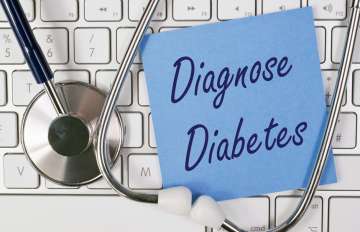Researchers, including one of Indian-origin, at the University of Texas have devised a durable and versatile wearable diagnostic tool that can measure thee diabetes-related compounds in minuscule amount of perspiration. It is the first wearable diagnostic device which can monitor these compounds for up to a week. It has an edge over the single use monitoring devices present in the market today. The wearable device will also be having an app which will sync the diagnosis on your smartphone, just like any other fitness tracker. The study was published in Scientific Reports.
"We believe we have created the first diagnostic wearable that can monitor these compounds for up to a week, which goes beyond the type of single use monitors that are on the market today," said Shalini Prasad, professor of bioengineering in the Erik Jonsson School of Engineering and Computer Science.
In a study published in Scientific Reports, Prasad and lead author Rujute Munje described their wearable diagnostic biosensor that can detect three interconnected compounds - cortisol, glucose and interleukin-6 - in perspired sweat for up to a week without loss of signal integrity.
"We wanted to make a product more useful than something disposable after a single use," Prasad said.
"It also has to require only your ambient sweat, not a huge amount. And it's not enough to detect just one thing. Measuring multiple molecules in a combinatorial manner and tracking them over time allows us to tell a story about your health," she added.
The team is also developing an app that will receive the wearable device's data on a cellphone.
"With the app we're creating, you'll simply push a button to request information from the device. If you measure levels every hour on the hour for a full week, that provides 168 hours' worth of data on your health as it changes," Prasad said.
That frequency of measurement could produce an unprecedented picture of how the body responds to dietary decisions, lifestyle activities and treatment.
(With IANS Inputs)

